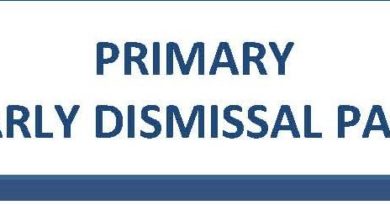WHAT OUR PYP EVALUATORS REPORTED
Dear Parents,
Please take a moment to familiarize yourselves with some of what was said.
The recent visit by the PYP Regional Office has provided us with some helpful insights into how we can continue to improve our programme. These can be broadly summarized into 4 long-term goals.
Developing and completing written curriculum documents by
- ensuring that we continue to complete consistently formatted planners that are easily accessible
- ensuring that our written curriculum is equal to or better than PYP scope and sequence documents., and that it is more readily accessible.
Improving planning and collaboration practices by
- ensuring that we continue to explore how to collaborate more effectively when developing units within and beyond the programme of inquiry
- ensuring that our practices are more clearly aligned with our policies
Strengthening some core teaching and learning by
- ensuring that we continue to build a shared understanding of the inquiry process
- ensuring that all of the programme’s essential elements are regularly assessed.
Providing more comprehensive professional development opportunities by
- ensuring that we continue to develop opportunities for more involvement with educators beyond the school.
- ensuring that we develop further access to current IB publications
The Primary School also received a number of excellent commendations. These include,
The school supports and promotes the action component of the programme. Action is a natural part of school discourse. It is understood by all sections of the school community and appropriately celebrated.
The school models and promotes open communication across the school community. Leaders, teachers, students and parents consistently describe a respectful learning and workplace environment.
The school has allocated funding to facilities that enhance the implementation of the programme at the school above what is required.
The school provides significant learning support for students within the programme. Support for students is inclusive by nature, strategically addressing specific learning requirements across the primary section of the school. Support teachers have built strong and trusting relationships with students, providing a safe and caring learning environment and opportunities for success.
The school has made significant changes in the timetable to ensure it provides significant opportunity for in-depth inquiry and transdisciplinarity via the published and implemented teacher schedule.
The school utilizes local resources and expertise to enhance teaching and learning within the primary section of the school.
Teachers have incorporated differentiation for student learning needs and styles into collaborative planning and reflection.
As part of the natural discourse of the school, teaching and learning addresses the competencies, experiences, learning needs and styles of students across the primary section of the school. The school has significantly developed capacity in the area of differentiation, supporting individual needs, interests and learning styles and promoting a culture of student support, success and inclusivity.
The school encourages teachers to engage a broad range of strategies supporting teaching and learning.
The school consistently employs strategies supporting differentiation, supporting the range of learning needs, styles and interests across the primary section of the school.
The school demonstrates the use of grouping and regrouping across the school for a variety of learning purposes. Grouping and regrouping strategies engaged by teachers support the individual needs, learning styles and interests of students.
The school has built a stimulating learning environment based on understanding and respect throughout the school community.
Thank you to everyone for your positive, ongoing support. I think that the final statement speaks highly of our entire learning community.
Warm regards,
Alan Lorenzini


